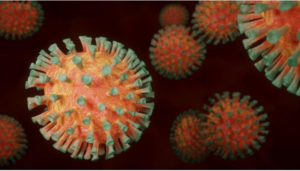 The World Health Organization (WHO) has declared that another pandemic is not expected to occur as a result of the coronavirus. The WHO continues to monitor the SARS-like virus, but it does not expect that this virus will cause a new epidemic. This declaration comes after many months of investigating the virus and its impact on those who have been infected.
The World Health Organization (WHO) has declared that another pandemic is not expected to occur as a result of the coronavirus. The WHO continues to monitor the SARS-like virus, but it does not expect that this virus will cause a new epidemic. This declaration comes after many months of investigating the virus and its impact on those who have been infected.
Many people had once feared that the virus might continue to cause new epidemics since so many people in China are infected with it. However, the last one occurred nearly 14 years ago, and many experts now believe that the virus is no longer a major concern for global health. The coronavirus may have reached the end of the road of being a global epidemic, and now health officials are focused on monitoring those who have been infected and the potential for future cases.
But What About COVID-19? Is It Still a Danger?

As the expression goes, “now that’s a loaded question”, as it depends upon who you talk to and the area of the world in which you live; however, there are some general facts that cannot be disputed. Let’s take a look at these facts and see how we now stand against the pandemic.
- Resultant Deaths Diminish the Outbreak
It is an unfortunate circumstance, but those that have perished from COVID-19 greatly reduce those that will perish in the future, resulting in healthier individuals whose natural immune system limits or eliminates hospital stays over those who had a very weak immune system and succumbed to it earlier on. Unfortunate and tragic, but those are the facts.
- The Vaccines are Working!

As of the writing of this article, statistics show that the vaccines for COVID-19 are successfully fighting the disease.
From a medical perspective, the vaccines are showing that they do help build more antibodies in your body, which are the primary entities that kill the virus.
That doesn’t mean that if you are vaccinated, you will not catch it, but if you do, you will most likely feel only cold systems and not major issues such as fever or inability to breathe. In other words, you are at a substantially lower risk of getting a severe illness and death. With that said, there are circumstances where some folks have had medical issues after getting the shot. They may feel chills or headaches within 24 hours of receiving the vaccine, but then it goes away.
- The Natural Immunity Factor
As previously mentioned, there are many people who have a natural immunity towards the virus, and these folks either don’t get sick or simply have the cold symptoms discussed, but some do not want to get the vaccine. This may be attributed to people who are just fearful, regardless of the statistics, religious reasons, or political reasons; however, Howard Fensterman (as well as many major researchers and scientists throughout the world) believe that the COVID-19 vaccines are safe to take!
Conclusion

The coronavirus has not been seen as having any serious consequences for the health of the world at large, with its deaths being limited to a lesser number of individuals each week in the US.
There is still research going on and will probably go on for the next 20 years. As for now, the threat to the world’s population seems less severe, and new research will focus on using these studies to improve human health in the future. With that said, let us not fall into the false premise that COVID-19 has totally left us. We still need to maintain our guard, and practice social distancing, cover our faces with a mask and wash our hands regularly!
